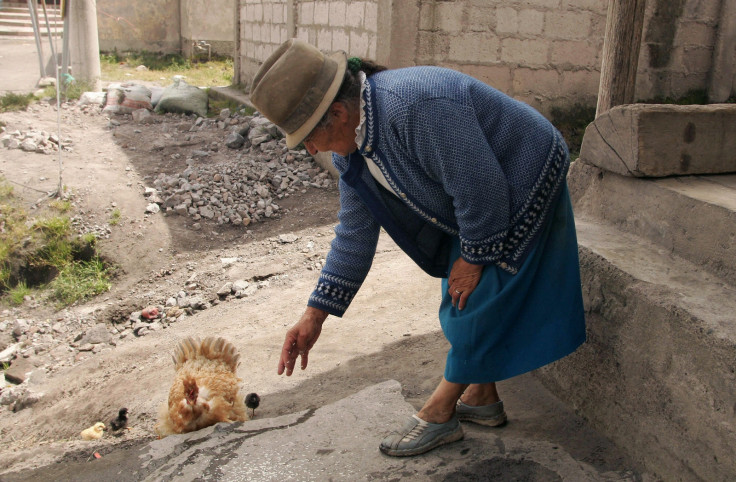An egg a day helps children grow taller - and it could make them become healthier adults
Babies given an egg a day consumed less sugary foods, offering hope to tackle the child obesity crisis.

Giving weaned babies an egg a day for six months dramatically improves their growth if they are undernourished, a trial has found, boosting their chances of becoming taller, healthier adults.
About 80 babies between 6 and 9 months that had recently been weaned were given an egg a day for six months in addition to their normal routine, and 80 babies in the same community in Ecuador continued to be fed as usual. After six months, babies given an egg were half as likely to have reduced growth as the other group.
The study, published in the journal Pediatrics, was carried out in Ecuador, where growth stunting is a widespread problem. Among the indigenous highland communities in the Ecuadorian Andes, where the study was carried out, about 43% of children under 5 have stunted growth.
This is the first randomised, controlled trial to test the effect of eggs on stunting.
"It's no single nutrient in the eggs but rather the whole package of amino acids and fatty acids, and also vitamins like and choline and B12," study author Lora Iannotti of Washington University in St Louis told IBTimes UK.
Tackling stunting
The World Health Assembly identified stunting as its top challenges to overcome by 2025. Babies with stunted growth tend to become smaller children, and to eventually have a reduced height as an adult. And it's not just about height.
"Men and women with stunted growth both have a reduced lifespan and limited economic productivity," said Inka Barnett of the Institute of Development Studies, a paediatric nutritionist who was not involved with the study.

"And probably even more devastating are the changes in cognitive development. Brain development needs nutrients. If these nutrients are not given in first 1,000 days from conception, the brain cannot develop to its full potential.
"This has lifelong consequences with respect to educational outcomes, job prospects and the economic development of the whole country."
The study offers a promising and relatively cheap way to tackle stunting in countries where it is a significant problem, Barnett said.
"It's not an industrially produced food, it's a natural food. So perhaps it's more accessible than micronutrient biscuit, which is given to mothers in some contexts."
The eggs in the study were bought from local small-to-medium-scale chicken farms. They are also a part of the diet of the population already, but are not typically given to babies.

Less appetite for sugar?
As well as improving the babies' growth, those given an egg a day were also less likely to eat sugary foods.
"We weren't looking for this, but we found in the group who received eggs that it reduced the children's consumption of sugar-sweetened foods," Iannotti said. "That wasn't what we were trying to do, but that was a very good finding."
Exactly why eating eggs reduced intake of sugary foods isn't yet clear. It could be because the eggs filled them up and so they had less appetite for other foods, Ianotti said, although further research would be needed to test this.
This finding could be significant in developed countries where obesity is the type of malnutrition that dominates.
"This is the case in many places right now – there is a dual burden of under and over-nutrition. Even in children, the consumption of sugar-sweetened food and drinks is on the rise and it's very problematic for nutrition," said Ianotti.
"The nice thing about eggs is that in many places in the world that already a part of the diet. They're a high-quality food that isn't packed with empty calories."
© Copyright IBTimes 2025. All rights reserved.




















